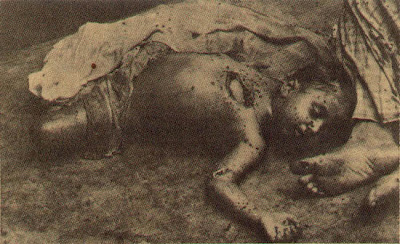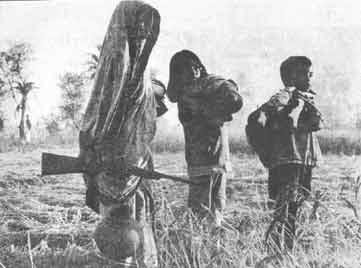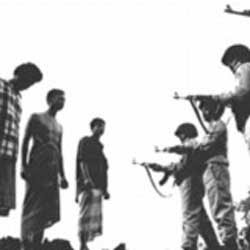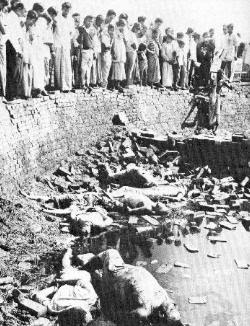These are the people of Darfur.
They growned up to see dead bodies.
What a life they lead ???
Can u ever imagine such a life.
Pls do something for these people.






Can we do some thing for them?
Please donate money /labour/ eduction to save all those innocencet faces.



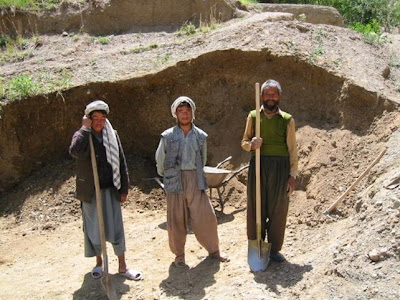

Rie Miyazawa (宮沢 りえ Miyazawa Rie?, born on April 6, 1973) is a Japanese actress and singer.
Rie Miyazawa was born in Tokyo, to a japanese mother and a Dutch father, and raised by her mother. Since her debut at age eleven in an advertisement for Kit Kat, she has many films, television shows, commercials, stage appearances and photo books to her credit. She starred in the children's comedy Bokura no Nanokakan Senso (AKA Seven Days' War) and Tokyo Elevator Girl. Rie made her J-pop debut on 15 September 1989.
She gained notoriety in 1991 with the publication of a nude photo book, Santa Fe, and even more publicity in 1992 by her engagement to sumo star Takanohana. The engagement was called off in 1993. Following the split, Rie seemed to be on a downward spiral to self-destruction. In September 1994 she cut her wrists with a broken glass in what she described as an "accident".[1] The tabloids focused on Rie's drinking session, fights with her mother and her escape to a nearby hotel as signs of a failed suicide attempt.[1] Rie, however, seemed to pull herself back from the brink, putting in a commendable performance in Kon Ichikawa's movie Chushingura that year. But the following February she pulled out of the drama Kura and in November backed out of the musical Kyote. Pictures of her looking decidedly gaunt began to circulate and there was speculation about whether she had developed an eating disorder.
In early 1996 Rie fled to Los Angeles to begin her recovery from anorexia. But by May she was back on TV reporting from the Cannes Film Festival and later that year she appeared in two TV dramas, Hanayome Kaizoebito and Kyosokyoku. Kyosokyoku turned out to be a great success and it seemed as if Rie's magic touch was back. In 1997 she made Mikeneko Homes (tasogare) Hoteru, and also appeared on stage.
In 2001, Rie won the Best Actress Award at the Moscow International Film Festival by portraying a Chinese Kunqu performer in the Hong Kong movie Peony Pavilion, directed by Yonfan.
Then in 2002, she starred alongside Hiroyuki Sanada in Tasogare Seibei (The Twilight Samurai), the year's hit movie that took a raft of awards at home, including ones for the lead actors, and was even nominated for an Academy Award as Best Foreign Language Film. It was the first samurai movie by director Yoji Yamada, better known for his Tora-san series. In 2003 she played the role of Oshino in the NHK TV series Musashi.
2004's Tony Takitani—a rare adaptation of a short story by bestselling author Haruki Murakami—received critical acclaim, with Rie playing two roles alongside Issei Ogata. The film, which was entered at the Sundance Film Festival, has been described as a "a perfectly controlled minimalist film masterpiece."
In 2005, she starred as Tsubaki, in Ashurajou no Hitomi (あしゅらじょう の ひとみ), which is a movie adaptation of a 16th century play.
from wiki

Masami Nagasawa (長澤 まさみ Nagasawa Masami?, born June 3, 1987 in Iwata, Shizuoka) is a Japanese actress under Toho Entertainment. She has performed in many famous movies and television dramas including Crying out Love, In the Center of the World, Nada Sousou, Dragon Zakura and Proposal Daisakusen. She graduated from Horikoshi High School in 2006. She is also known as "Ma-chan" or as Yamashita Tomohisa calls her "ma-tan". She is the daughter of Kazuaki Nagasawa, the former manager of the J. League team Júbilo Iwata.
In 2000, she auditioned in the 5th (Year 2000) Toho "Cinderella" Contest at the age of 12, and emerged as the youngest winner ever out of a total contestant pool of 35,153 individuals. This marked the beginning of her career in the entertainment industry. She made her debut in the movie, Crossfire, released in the same year. In the following year, she appear to have commented, "I did wonder if it's true that becoming a "Cinderella" mean that I will immediately become a famous actress". Afterwards, she became a professional model for the popular teen magazine, Peach Lemon.
In 2002, her appearance in the Nabisco CM earned her the title of "The Pretty Girl from the Nabisco CM" in magazines and TV shows, as her name was not yet well-known at the time.
In 2003, she had her very first leading role in the movie, Robokon. This is a movie about a high school girl who reluctantly participates in the National Robot Contest for High School Students. Masami was awarded the Best Newcomer prize in the 27th Japanese Academy Awards for her excellent performance in this movie. Later, she commented that it was this movie that first brought out her acting skills, and that it remains one of her favourite works to this day.
She co-starred with Chihiro Otsuka, the Judges' Special Award winner from the 5th Toho "Cinderella" Contest, in the 27th movie of the Godzilla Series, Godzilla: Tokyo SOS in 2003 and the last movie of the series Godzilla: Final Wars in 2004. The two actresses also sang the track, The Song of Mothra, which was later released as part of the Godzilla: Tokyo SOS sound track CD.
In 2004, Masami starred as the heroine of the story, a teenage girl who died of leukemia, in the big hit movie, Crying Out Love, In the Center of the World. The movie was a box office success in Japan, earning 8500 million Yen in total. It was in this movie that she decided to shave off all her hair to accommodate her role as a leukemia patient. Her outstanding performance in this movie earned her numerous awards including the Best Supporting Actress Prize (the youngest ever) in the 28th Japanese Academy Awards.
Since then, she has also starred in other movies and has also been actively involved in dramas and other TV shows. In 2005, she starred as a student along with several others in the all popular high school inspiration drama, Dragon Zakura. Then in 2006, she starred as a female ninja in her first NHK Taiga Drama, Komyo ga Tsuji, which was immediately followed by her appearance as the female protagonist in the drama remake of the 1981 big hit movie, Sailor Fuku to Kikanjuu (starring Hiroko Yakushimaru). Her first single was subsequently released under the name Hoshi Izumi, the name of the female protagonist from Sailor Fuku to Kikanjuu.
In April 2007, she co-starred with Tomohisa Yamashita for the second time in the fantasy love comedy, Proposal Daisakusen (first time was in Dragon Zakura). She spent nearly one month in India filming for her latest SP drama, Butterfly Stroke in Ganges River, based on Takano Teruko's original travel biography.
From Wikipedia, the free encyclopedia

She was born Farida Akhtar, to an educated family that had its origins in the west-Bangladeshi district of Jessore. Her family nickname was Poppy, and like her mother, she had early ambitions of becoming a doctor. Instead, she was to become the most accomplished actress among three sisters, all of whom became movie stars.
In the mid-1960s, her elder sister Kohinoor entered the movie industry in the capital Dhaka, and adopted the screen name Shuchonda. In 1968, Shuchonda married Zahir Raihan, a talented film director who was later to lose his life in an ambush by West Pakistan forces[1] during the Bangladeshi war of independence. Raihan was casting around for a heroine for his movie Jaltey Suraj Ka Nichey, when his producer Afzal Chowdhury mentioned that his sister-in-law might fit the bill [1]. Poppy was photogenic and had already acted on television. Raihan agreed to cast her, and although the film was not completed in the end, she had found an entry into the industry. Her first released feature was Shesh Porjonto.
In an interview with the Independent newspaper in 2004, Bobita says that it was Afzal Chowdhury who suggested the screen name Bobita for her. In another interview with the Daily Star in 2005, she mentions that Raihan originally cast her for the movie Shongshaar [2]. A different version of the story is that she adopted the name after appearing in Ehtesham's movie Pitch Dhala Path [3]. Whatever the truth, what is beyond dispute is that 35 years later, Bobita remains one of the most beloved and enduring names in Bangladeshi popular culture.
From Wikipedia, the free encyclopedia
Blog Archive
-
▼
2009
(28)
-
▼
January
(24)
- Don't let them back
- Some innocent faces
- The Cruel Face of ISRAEL
- Genocide in 1971
- Rie Miyazawa
- Masami Nagasawa
- Farida Akhtar
- Sophia Loren
- Madhubala
- Uttam Kumar
- Diego Armando Maradona
- Che Guevara
- Fidel Alejandro Castro Ruz
- Nelson Rolihlahla Mandela
- Yasir Arafat
- Muhammad Ali Jinnah
- Aung San Suu Kyi
- Ziaur Rahman
- Sheikh Mujibur Rahman
- Indira Gandhi
- Rajiv Gandhi
- Jawaharlal Nehru
- Mohandas Karamchand Gandhi
- Finding a High School Student Credit Card
-
▼
January
(24)
























